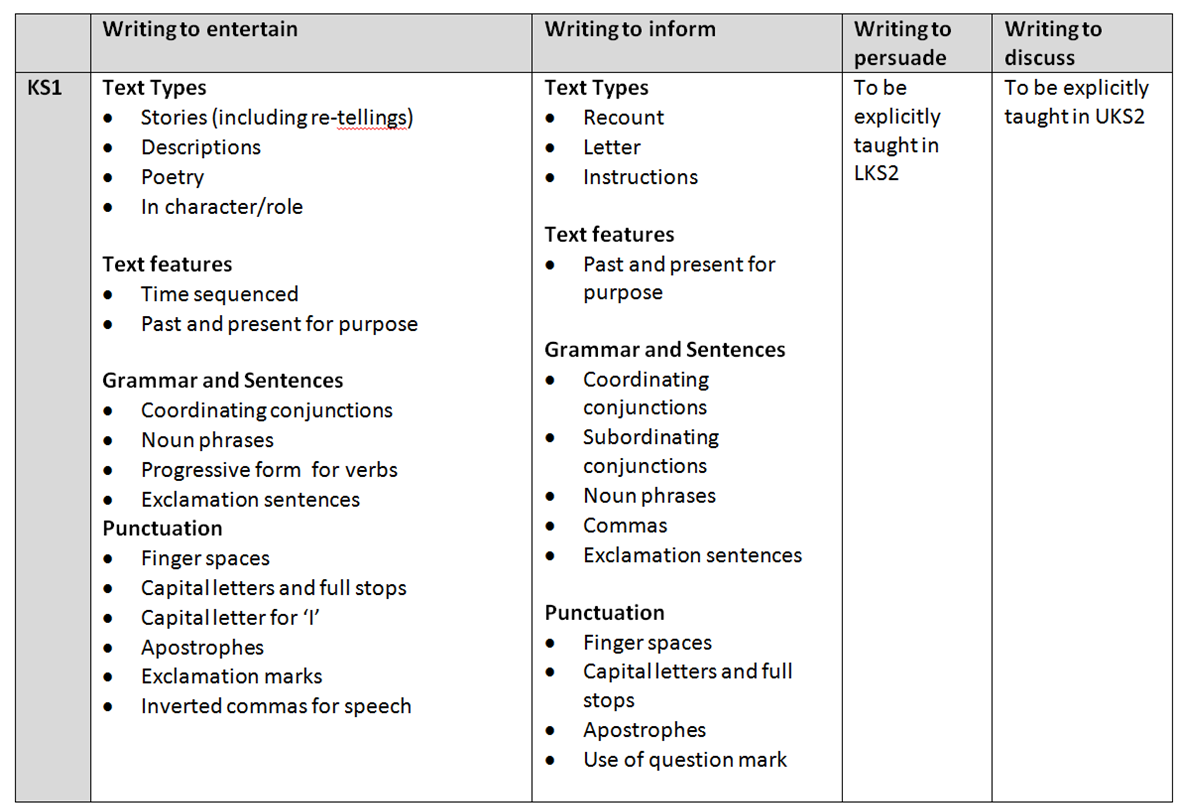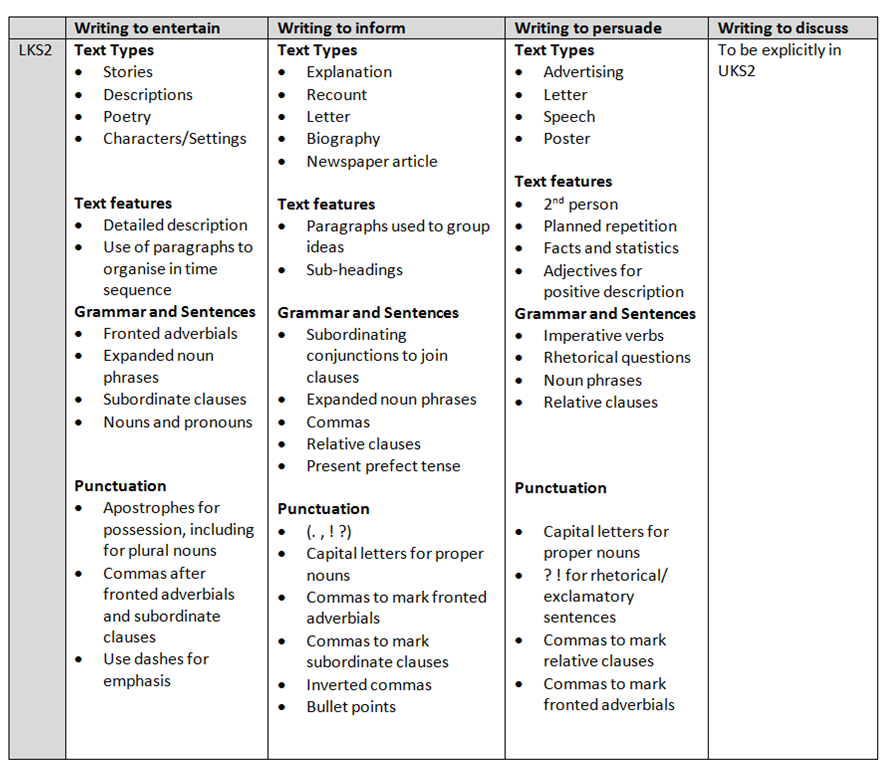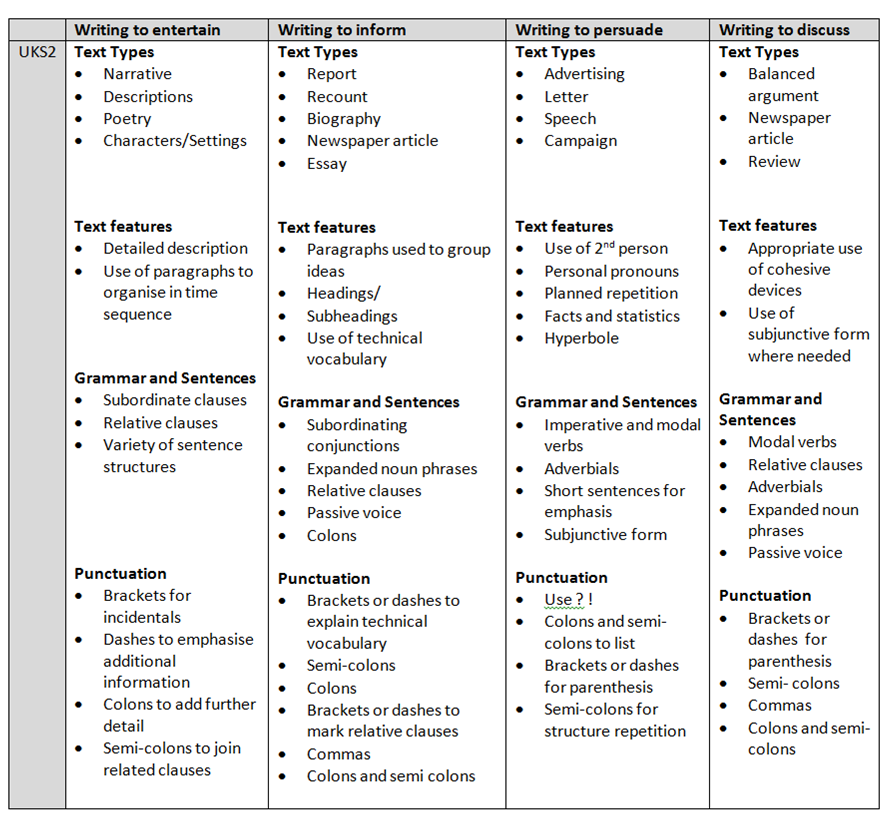Writing
Writing in the National Curriculum in England
Learning to write is one of the most important things that a child at primary school will learn. Children use their writing in almost all other subjects of the curriculum. Good writing also gives children a voice to share their ideas with the world.
For a child, learning to write can be tricky, not least because good writing involves handwriting, spelling, grammar and punctuation not to mention what we want to write and who we are writing for.
Our Approach to Teaching Writing
At Elmstead Wood Primary School, we follow a three-phase planning approach to the teaching of writing - study, innovate, create. Writing is taught progressively over a three-phase ‘cycle’ with the end goal being an extended piece of independent writing. The build-up sessions preceding offer the analysis and scaffolding required to teach the skills for each particular genre of writing and its purpose. By evaluating published texts (models) at the beginning and throughout the cycle, children are able to use reading to underpin their writing. From there, children are offered 'hooks' in the form of rich learning activities and events to completely engage them in their writing and see that their writing has a real purpose. Across the three phases, teachers ensure that certain principles are embedded to support the writing of the final piece; these are (but are not limited to):
- A variety of feedback techniques
- Discrete and relevant grammatical sessions
- Word banks to support children's vocabulary use
- Scaffolding and model writes to demonstrate the expectations required
- A mixture of sentence level and extended writing sessions
- Children are given a chance to continually edit and peer assess all work
- Outdoor learning and drama opportunities are available.
By using model texts to support children's work, and by using a progressive planning system to build up to a final piece, the children are able to fully engage with what is being taught. Furthermore, they are able to continuously link their learning to the text studied, and to the experiences that they engage in. We believe that by using this three-phase model, children are able to reach their potential in writing quicker as they understand their purpose for writing, and most importantly, they understand the power of their writing.
Early Years Foundation Stage (EYFS)
In reception, children will start to learn how to form letters correctly. They will be encouraged to use their knowledge of phonics to write words in ways which match their spoken sounds. By the end of the year, they will be expected to write simple sentences which can be read by themselves and others.
Key Stage 1 (Years 1 and 2)
In Year 1, children will be taught to write sentences by saying out loud what they are going to write about, putting several sentences together and re-reading their writing to check it makes sense. They will also be expected to discuss what they have written and to read it aloud.
In Year 2, children learn to write for a range of purposes, including stories, information texts and poetry. Children are encouraged to plan what they are going to write and to read through their writing to make corrections and improvements.

Key stage 2 (Years 3 to 6)
In Years 3 and 4, children are encouraged to draft and write by talking about their writing. They will continue to learn how to organise paragraphs and, if they are writing non-fiction, to use headings. When they are writing stories, they will learn to use settings, characters and plots. Children in Years 3 and 4 will be expected to use what they know about grammar in their writing and to read through what they have written, to find ways to improve it.
In Years 5 and 6, children will continue to develop their skills in planning, drafting and reviewing what they have written. Children learn to identify the audience for and purpose of their writing. They will be expected to use grammar appropriately. In non-fiction writing, children will use headings, bullet points and other ways to organise their writing. They will be expected to describe settings, characters and to use dialogue in their stories.

